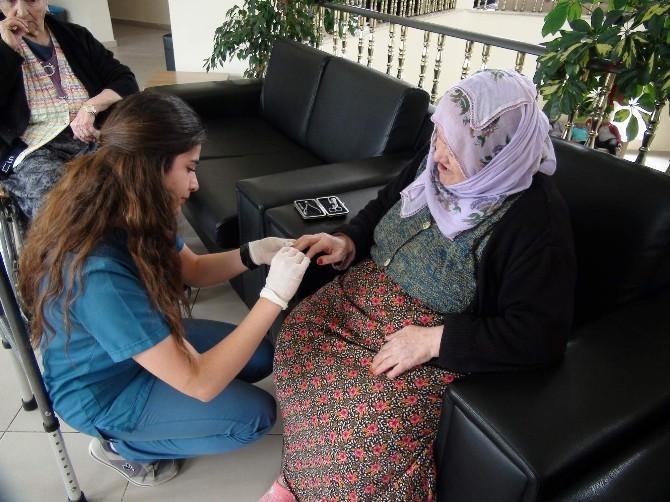1.3 million students begin serving needy people in Turkish internship program
ANKARA

Some 1.3 million vocational school students across Turkey have started providing community services as part of internship programs, serving elderly, low-income, disabled and disadvantaged people, state-run Anadolu Agency has reported.
The community service program was launched following a circular issued by Education Minister İsmet Yılmaz.
Under the supervision of teachers, students from various departments encompassing metal works, furniture and refurbishment, visit the homes of disadvantaged groups to conduct basic repair and maintenance work.
The materials used during such work are provided by district governors’ officers and municipalities.
Vocational school students help people with gardening work, cutting their hair, cooking their food, and measuring their blood pressure. Students also provide basic knowledge regarding Internet and cellular phone security.
“With this program we want to create a more favorable perception of vocational schools. This is also part of efforts to promote the vocational schools,” said Osman Nuri Gülay, general manager of the Education Ministry’s Vocational and Technical Education unit.
People to receive such help are identified by provincial directorates of the Education Ministry across the country in coordination with neighborhood heads (muhtar) and district governors’ offices, Gülay added.
“There are 1.3 million students studying at around 3,600 vocational schools across the country. Students in the 10th, 11th and 12th grade take part in the project,” he said.
The project also involves students helping elderly people write about their memories.
“Their memoirs will later be collected in a book and a photo album will also be prepared,” Gülay said.
“After the collection of the community service project data we will see how many households have been covered by the program and how many people have received help,” Gülay noted.
















